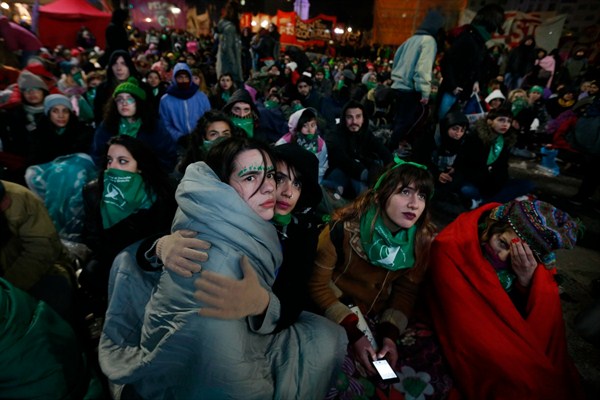On June 13, members of the lower house of Argentina’s Congress held an all-night debate on a decisive bill that would legalize voluntary abortion through the first 14 weeks of a pregnancy. Over 11 hours into the debate, lawmaker Fernando Iglesias held up a world map color-coded with each country’s stance on abortion. It showed the United States, Australia and most of Europe and Asia in green, signifying pro-choice legislation. South America and Africa were mostly in red, or orange, representing a complete ban or tight restrictions on abortion. “Think about just one other country you want Argentina to look like,” Iglesias asked his fellow members of the Chamber of Deputies. “Let’s think about the country, and think about where we want the country, which is watching us, to go.”
Though much of the chamber met Iglesias with jeers, he was correct about one thing: The whole country was watching. Thousands of Argentines had flocked to Congressional Plaza in the center of Buenos Aires that night, where a big-screen projection was showing the debate taking place next door. Media outlets pinned live feeds to the front of their websites. The hashtags #AbortoSeraLey, or “abortion will be law,” and #NoAlAborto, or “no to abortion” were on Argentina’s top trending list on Twitter. The country was collectively grappling with the question Iglesias posed when he held up his map: How should Argentina reconcile its own conservative, religious principles—the same ones shared by many of the nations colored in red—while also addressing women’s rights with the attention of those colored in green?
After more than 22 hours of debate, the Chamber of Deputies sided with the green, 129 in favor and 125 against. Although the bill still needs approval from the Senate and President Mauricio Macri, who says he plans to sign whatever version of abortion legislation manages to reach his desk, its progress up to this point feels historic for opponents and advocates alike.

